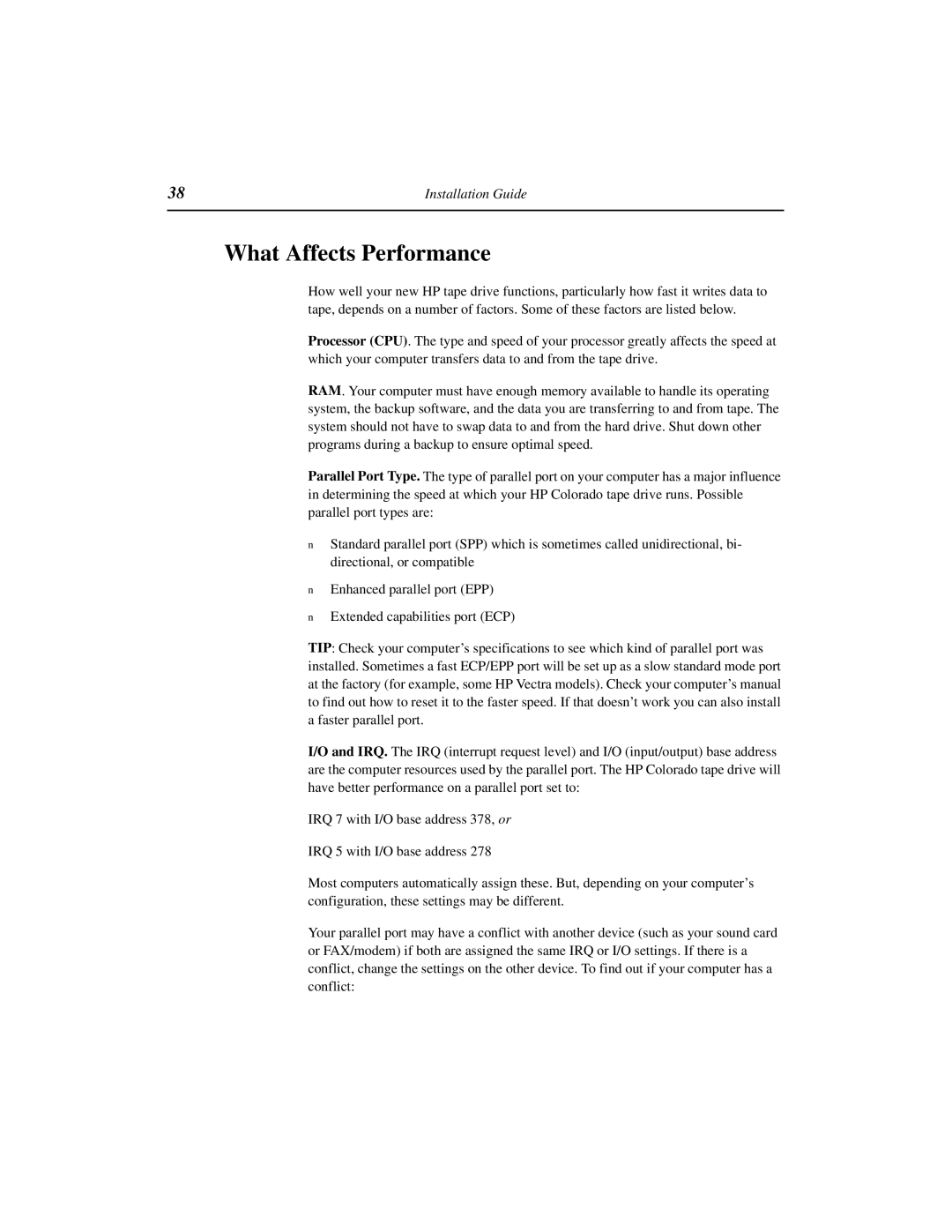38 | Installation Guide |
|
|
What Affects Performance
How well your new HP tape drive functions, particularly how fast it writes data to tape, depends on a number of factors. Some of these factors are listed below.
Processor (CPU). The type and speed of your processor greatly affects the speed at which your computer transfers data to and from the tape drive.
RAM. Your computer must have enough memory available to handle its operating system, the backup software, and the data you are transferring to and from tape. The system should not have to swap data to and from the hard drive. Shut down other programs during a backup to ensure optimal speed.
Parallel Port Type. The type of parallel port on your computer has a major influence in determining the speed at which your HP Colorado tape drive runs. Possible parallel port types are:
nStandard parallel port (SPP) which is sometimes called unidirectional, bi- directional, or compatible
nEnhanced parallel port (EPP)
nExtended capabilities port (ECP)
TIP: Check your computer’s specifications to see which kind of parallel port was installed. Sometimes a fast ECP/EPP port will be set up as a slow standard mode port at the factory (for example, some HP Vectra models). Check your computer’s manual to find out how to reset it to the faster speed. If that doesn’t work you can also install a faster parallel port.
I/O and IRQ. The IRQ (interrupt request level) and I/O (input/output) base address are the computer resources used by the parallel port. The HP Colorado tape drive will have better performance on a parallel port set to:
IRQ 7 with I/O base address 378, or
IRQ 5 with I/O base address 278
Most computers automatically assign these. But, depending on your computer’s configuration, these settings may be different.
Your parallel port may have a conflict with another device (such as your sound card or FAX/modem) if both are assigned the same IRQ or I/O settings. If there is a conflict, change the settings on the other device. To find out if your computer has a conflict:
